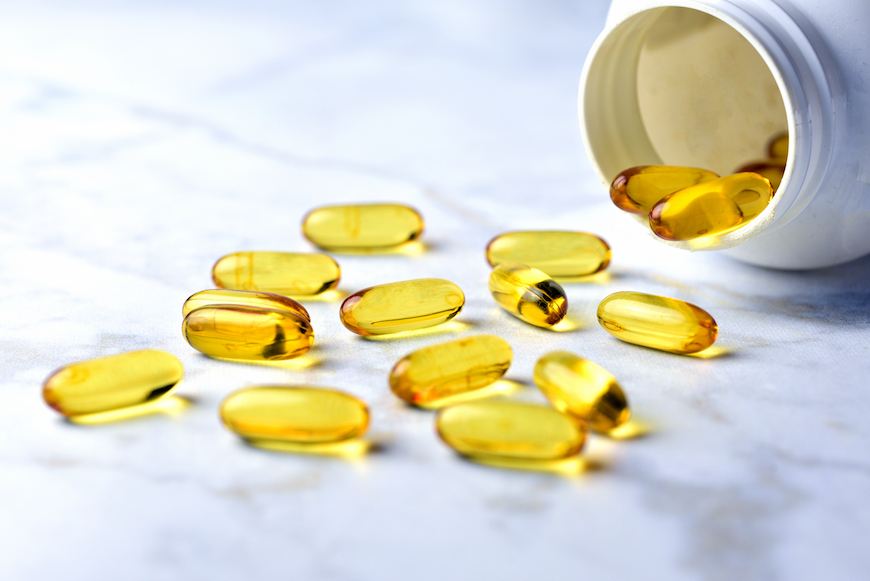4 Nutritionist-Approved Supplements for Super-Strong, Healthy Joints
Okay, so this topic may not be as fun as chatting about, say, your latest sexcapades or all the ways you're killing it at work. But to be the fittest resident at the retirement home, you should start upping your joint-care game ASAP. Because let's be honest: You can't exactly grease creaky knees or achy elbows as quickly and easily as the Soulcycle staff can lube up that squeaky wheel on Bike 15.
"The effects that can come along with joint pain can be really limiting, especially for super active people," says New York City-based dietitian Kelly Hogan, MS, RD. "Even if you're young and fit, you probably think ahead and know you want to do your favorite activities for years to come. That's why it's important to keep in mind what you're putting in your body."
The first step in maintaining good joint health, Hogan says, is to eat a healthy, colorful diet. "We tend to forget that foods can be anti-inflammatory, and those anti-inflammatory properties support good joint health," she says. So make sure you're eating plenty of colorful fruits and vegetables, healthy fats (avocado, please!), salmon and other sources of omega-3 fatty acids, whole grains, beans, and legumes. And don't just chow down on the rainbow for a week and then call it quits if you want lasting effects. "All the anti-inflammatory properties in these foods add up," Hogan says. "And when consumed over the long term, they support good joint health."

{{post.sponsorText}}
And what if you're doing all that, but you're still noticing your knees and hips feel sore after a long run? You may want to consider adding supplements to your well-rounded diet. "You shouldn't rely on supplements for joint pain or joint health," Hogan says. "At the end of the day, your diet as a whole over the long term is more important and beneficial. But think of supplements as just that: a healthy supplement to what you're already doing."
Here are four nutritionist-recommended supplements for joint pain.

1. Vitamin D
Many people, particularly in the winter, are deficient in vitamin D. (Go to your doctor for a quick blood test to find out if your own supply is running low.) "Vitamin D is great for bone health, which can be related to good joint health," Hogan says. "And joint pain in particular tends to occur when we are low in vitamin D." Bonus points if you pair it with magnesium—a recent study showed it's better absorbed that way. This essential vitamin is also great to take as you age, and can be helpful for menopause joint pain in particular.
2. Turmeric
This yellow-hued spice is super buzzy, and for good reason. Curcumin—the active antioxidant in turmeric that has all those good anti-inflammatory properties—has been shown to reduce pain, inflammation, and stiffness. Just check with your doctor before adding turmeric to your supplement regimen, since you don't want it to interact with any other medications you might be taking. (It can have blood-thinning properties, for starters, which makes it a no-go before surgery.)
3. OMEGA-3s
Just a few grams of fish oil or algae oil per day can help soothe stiff, tender, swollen, achy joints, and can help increase blood flow throughout the body during exercise. (You can also add flaxseed or flax oil to your diet, Hogan recommends.)
4. Ginger
Ginger is an anti-inflammatory that's considered relatively safe with few concerning side effects. For serious joint pain, Hogan recommends a ginger supplement, which is a super-concentrated form of the root that you wouldn't be able to consume naturally. "It's hard to eat that much of any food in order to get the amount of antioxidants you'd need to reap the benefits," she says. But if you're just in maintenance mode, sipping on ginger tea will do you just fine.
These trainer-approved tips will help you keep post-workout soreness to a minimum. Or you could always try soothing your aching muscles with CBD.
Loading More Posts...